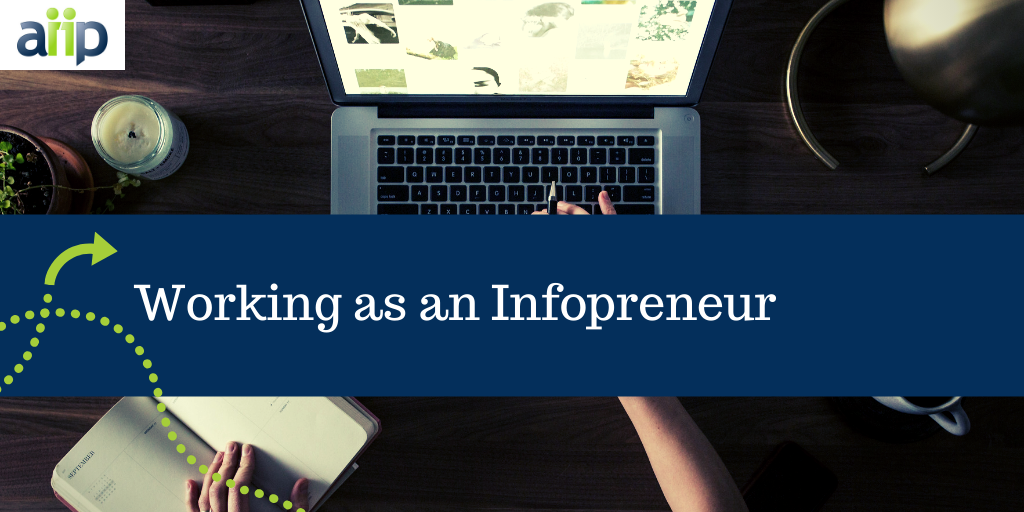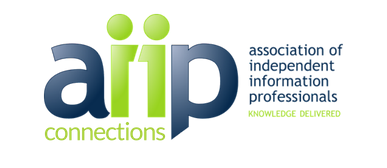Working as an Infopreneur

AIIP BLOG LEGACY CONTENT from September 2022
Editor’s note: occasionally we post legacy content that is still relevant today. Enjoy this piece by Denise Carter.
As I approach the 10-year anniversary of starting my information business, I have been reflecting on some of the things I learned about my business and my work processes. These five things help keep my business working:
- Flexibility – I didn’t expect 80% of my current work to be writing
I’m sure I’m not alone in setting out my business with a clear expectation of the kind of work I was looking for and the skills I would be using. While I have done some of the type of work I thought I would – developing competitor landscapes for pharmaceutical companies – 80% of my current work is writing. I recognize that in five years this allocation will likely look different again, and that’s just fine.
- The limits of flexibility – the ability to turn down work is just as important as accepting projects
If I don’t believe I can deliver a project to the required standard, I say no. I’m always willing to push myself out of my comfort zone, so if a smaller part of a project is something new or something I am less familiar with, I will still say yes. At that point I’m ready to put in the extra time to research, learn, and improve my skills to deliver. But if I’m offered something where more than 60% is outside my normal skill set, then I say no. That’s too high a risk for me and my client. I don’t want to damage my reputation, and I don’t want to let the client down.
I also say no if the financial or other rewards are too low. Refusing can be hard because sometimes there isn’t another client lined up. I’m based in Switzerland, where there are a lot of small, start-up biotech companies, and I’m often asked to do work “at risk” – i.e., to do the work initially for no money and to get paid only if, and when, the start-up gets funding. This can pay off, but for the most part I refuse because they are usually significantly sized projects. If a paying client project then comes in, I may find I don’t have the time I need to focus on the “at risk” project.
- I’m worth what I charge – no question
I’ve gotten over my initial queasiness about quoting my price. I make sure to always give the same rate (hour or day) when asked directly. The pharma world in which I work is small, and so I need to be consistent. If I do occasionally charge less, or as happens sometimes, more, there is always a clear justification – which I include in the proposal.
- My website isn’t there to get me clients – it’s there to give my business credibility
I really was convinced when I started out that some clients might come in via my website. I was 100% wrong. I recognize now that the purpose of my website is to let clients, coming in through other means, know that I am an established business. I now only expend the resources necessary to make sure the website is concise, accurate, up-to-date, and professional in appearance.
- Keeping on top of the admin work saves time
I’m one who likes doing the admin work of running a business. I find 30 minutes of paperwork and filing soothing, almost like a refreshing “sorbet” between pieces of actual client work. But even I can sometimes let something less soothing, like recording expenses, drift for a few months … and I always regret it!
Denise Carter served as 2022-23 AIIP president. She is currently the Chair of the AIIP25 Symposium and serves on a number of other committees. Denise started DCision Consult in 2013, providing research and analysis to support the competitive intelligence activities of pharmaceutical and biotechnology clients. Denise is based in Geneva, Switzerland, but her clients are located all over the world.





